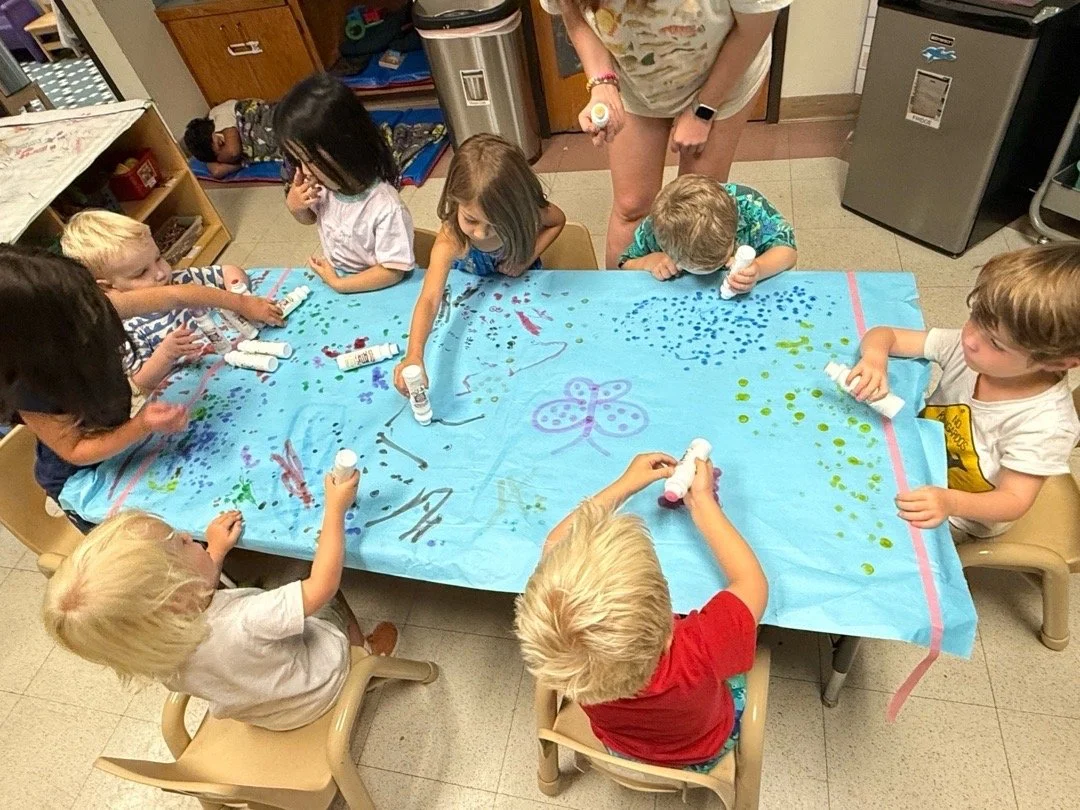
FAQ
We answer a few of our most frequently asked questions:
-
Open Door’s curriculum draws on several approaches (e.g., the Creative Curriculum, Reggio-Emilia, Emergent Curriculum, Nature-Based Learning, etc.); all are rooted in the guidelines for developmentally appropriate practice established by NAEYC. Ours is not a program where children sit at desks with worksheets.
Our curriculum addresses physical, emotional, social, and cognitive development. We view learning as an interactive process, with teachers preparing the environment to promote children’s active exploration and interaction with adults, other children, and materials. We promote learning through active exploration using materials and activities that are concrete, real, and relevant to the lives of young children. We believe that children learn as they play and play as they learn.
-
Accreditation by the National Association for the Education of Young Children is the gold standard in the field. It is a multi-year process that evaluates curriculum, policies and procedures, safety, community involvement, finances, and, most importantly, teacher/child relationships. Less than 12% of programs in Austin are NAEYC accredited.
-
We informally assess children all of the time through observation and interactions. We use Teaching Strategies Gold to track developmental progress, which is shared during Parent/Teacher conferences and helps to inform our curriculum.
-
We are often asked why a parent would send a child without special needs to the Open Door. “We can see the benefits for children with disabilities, but what’s the advantage for other children?”
The advantage is that the Open Door enables children to relate to one another as children, not as a diagnosis or a cluster of symptoms. Children of different socioeconomic backgrounds learn and play together, a rarity in our community. Children experience differences without prejudice, a lesson that can last a lifetime.
-
In short, we expect Open Door and our families to be active, engaged, respectful partners.
Although our focus is on high-quality, inclusive early childhood education, we are very much about building community.
We would not exist if we were simply a place where parents dropped off their kids in the morning and picked them up at the end of the day. The bonds that our families and children form—with classmates, other parents, teachers, and other staff—are the essence of community. We want to do all that we can to encourage the building of those bonds.
We also expect our families to volunteer in any way they can, lending their expertise, creativity, and sweat as needed. Since tuition covers only 73% of the cost of our program, we rely on the community—including our families—to invest in our program as volunteers and donors.
All of us, especially parents of young children, are busy. But we hope that our families experience their involvement with Open Door as a source of support rather than merely a duty.
-
Open Door has been a United Way partner agency for over twenty-five years. United Way for Greater Austin funds non-profit, high-quality early childhood programs that address the needs of low-income and vulnerable families. Its process is highly selective, requiring an annual financial audit and adherence to NAEYC standards.
-
This is a rating system by WorkForce Child Care Solutions, the primary source of funding for childcare subsidies for low-income families. Our three sites earn a 4-star (the highest) ranking.
-
Open Door at M Station and Open Door North are open from 7:15 a.m. to 5:45 p.m., Monday-Friday. Open Door-Central is open from 7:30 a.m. to 5:30 p.m.
-
Families are responsible for providing lunch for their children. We follow a strict no-sugar, nutritious foods policy. Open Door provides healthful morning and afternoon snacks.
-
Each site has Family C.A.R.E.S. staff to help families navigate the state tuition subsidy system. Project Helping Hand is Open Door’s internal program to assist families that do not meet the eligibility criteria for government subsidies but nonetheless struggle to pay full tuition. This funding is limited.
